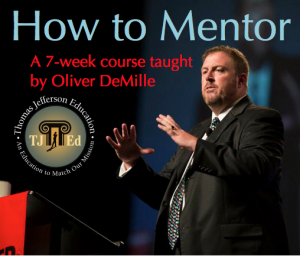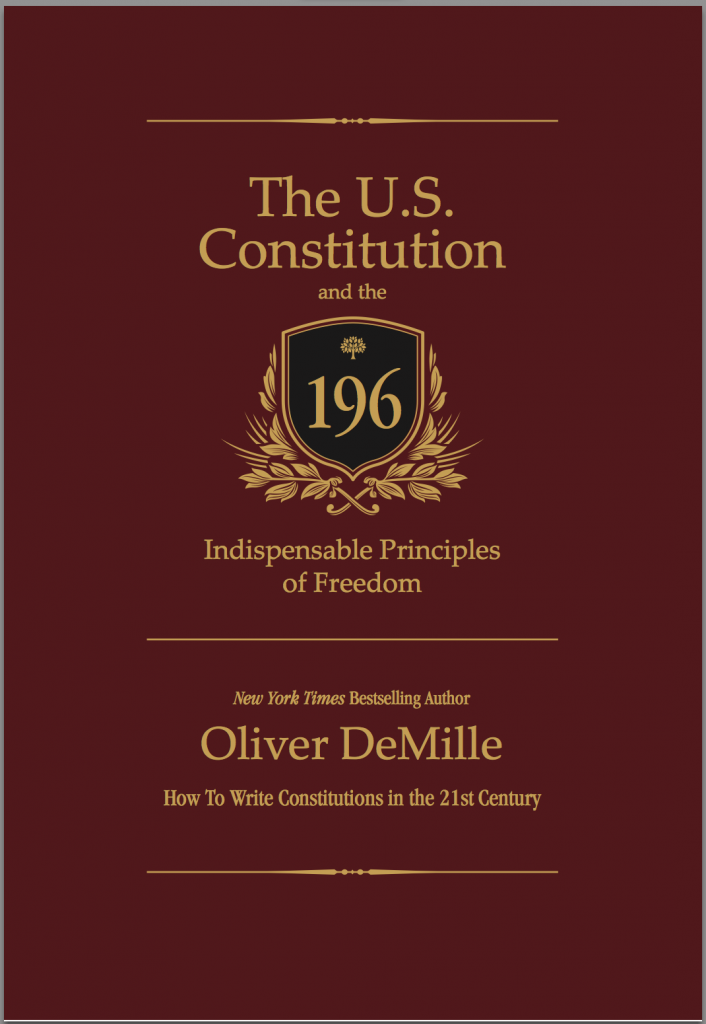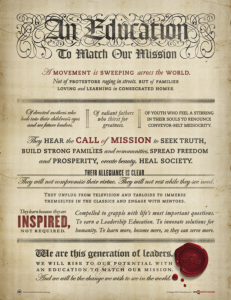Why Doesn’t America Elect Many Great Leaders to the Presidency?
April 25th, 2016 // 5:40 am @ Oliver DeMille
Then and Now
 Over a century ago the British historian James Bryce travelled the United States to discover what had changed since Alexis de Tocqueville wrote Democracy in America. One of the most interesting topics he wrote about was, “Why Great Men Aren’t Elected President in the United States.” (James Bryce, The American Commonwealth.)
Over a century ago the British historian James Bryce travelled the United States to discover what had changed since Alexis de Tocqueville wrote Democracy in America. One of the most interesting topics he wrote about was, “Why Great Men Aren’t Elected President in the United States.” (James Bryce, The American Commonwealth.)
Bryce noted that during the founding era, the greatest men in the nation rose to the presidency—Washington, Adams, Jefferson, Madison, etc. But as time passed, this tradition changed. (see ibid.)
“Why?” Bryce wondered. His answer is instructive today: the greatest leaders in the nation don’t even try to become president. (Ibid.) They don’t want the job. It is true that Washington didn’t seek the position, but after John Quincy Adams—with the exception of Lincoln—the greatest leaders actively shied away.
At the time Bryce described this phenomenon, it could be explained by showing that the presidency wasn’t the real seat of power. (Ibid.) This reality dominated for a long time after Bryce, in fact. Congress wielded great influence during the long progressive era (from 1890 to 1970), and the Court increased its power as well—a major frustration for Wilson and FDR. William Howard Taft, for example, who served in Congress, as president, and on the Court, had less influence in the White House than the other positions.
Tragedies
In the post World War II era, however, the executive branch greatly increased its power—both literally (with huge additional powers in foreign relations and budgetary influence) and relatively (largely because Congress stopped effectively or frequently using the purse strings as a serious check or balance). If lack of power is the reason the greatest leaders didn’t aim for the Oval Office a century ago, what is the reason now? The power of the presidency is immense. It is often referred to—and seen by the populace—as the most powerful job in the world.
Why don’t the very best leaders want it? Is it because the party system has become so strident that anyone elected will spend as much or more time fighting partisan battles and attacks as governing? Is it because the perks of the office are so much less than the soaring benefits of corporate or business leadership? Is it because the headaches and problems are worse than other fields of leadership? Is it because the election process itself has become such a torturous ordeal? Or is there some other reason?
At this point I intended to list the names of a number of excellent leaders—from different walks of life and from both sides of the political aisle—who might put the current crop of candidates to shame in terms of leadership. But as I made the list it became clear that in the current political climate all of these men and women would quickly be turned into caricatures by the party system and the media. Just picturing them in politics somehow changes how we see them.
This is a central part of the problem. Here’s what I think it means: The system has become bigger than a candidate can ever hope to be. The job is simply so big (because the federal government is doing so many things never intended by the Constitution) that it has become…too big. It is too much for any one man or woman. The leaders with the most acumen and wisdom know this.
Those who don’t realize that this is the situation aren’t the best leaders because they don’t even understand the reality, and those who realize it but–want the job anyway–may not have the purest of intentions, in some cases. If Washington were pruned back to its literal Constitutional authority, the job would once again become manageable. But just like Washington is out of control, the position of president isn’t structurally up to the task.
The media has attempted to cope with this reality in two major ways: with humor or tragedy. Shakespeare took the same approach in dealing with European monarchies that had also become too big for one person—trying to run the executive, legislative, judicial, national and local all at once. His plots pit the character—man or woman—against the impossibility of the role. The result is either comedy or tragedy.
Icons and Candidates
In America, we tend toward tragedy. As Christopher Orr has pointed out (The Atlantic, March 2015, 56-59), America’s modern image of what our president should be was largely created by Jimmy Stewart in Mr. Smith Goes to Washington: A noble hero taking on a corrupt system. Though Stewart’s character was a Senator, the icon has been repeated in many popular American movies, television dramas, and books about the executive branch (e.g. Dave, The American President, West Wing, Air Force One, The Candidate, The Hunt for Red October, Patriot Games, Madam Secretary, etc.).
These “tragedies” are more hopeful than their British counterparts, but the noble heroes never do truly change the system. They fight a noble fight, but the system ultimately prevails. Other recent American comedies or dramas about Washington (e.g. Veep, Scandal, House of Cards, State of Affairs, The Bourne Ultimatum, Political Animals, etc.) portray less-than-noble leaders who are simply part of the broken system. (see ibid.)
In contrast, Orr notes that many British portrayals of their prime minister emphasize humor or, in the case of the British version of House of Cards, the opposite of the American model: a prime minister who is truly conniving and dishonest working his schemes and plots in a government made up of basically well-meaning people (ibid., 57). But in America, “the one honest man” motif still dominates (ibid., 58).
In the real world, this icon has become part of the 2016 election in both major parties. Ted Cruz frequently invokes “the Washington Cartel” as the corrupt system and pits himself as the lone voice fighting its many nefarious agendas, while Bernie Sanders attacks the establishment as the great roadblock to American progress and happiness. Both promise to change Washington in drastic ways.
Donald Trump makes the same case, albeit in very different words: to make America great again, a true outsider with proven big business leadership is needed (because only such a background prepares one to manage the behemoth of a job, to fully understand the global economy and to lead the kind of “non-politician” projects and negotiations that will reboot our economy for real). A number of candidates have made similar outsider arguments (the noble hero rides Quixote-like to reform Washington), from Ben Carson and Rand Paul to Carly Fiorina and John Kasich.
Only Hillary Clinton isn’t closely aligned with this theme. Her message (which seems to vacillate between “it’s my turn” and “vote for experience”) is the opposite of “the one honest woman” icon. As a number of political experts have pointed out, Americans don’t tend to elect two consecutive presidents from the same party. When they do (i.e. Bush I, Johnson, Truman) it typically occurs after an exceptionally popular president (Reagan, Kennedy, FDR).
The New World?
Is Obama such a president? And can Secretary Clinton capture the nation’s attention and support? Such questions remain to be answered. But the biggest question of all—for America and the world—also remains to be seen. Will the next president turn out to be a great leader?
In a world with incredibly high-stakes challenges (including big power conflict between the U.S., China, Russia, Europe, etc.; the chaotic rise of new powers in the world including Saudi Arabia, India, Brazil, North Korea, Iran, and a half dozen others; getting a real solution for terrorism—just to name three), this is a serious issue indeed. And effectively rebooting our flagging economy is enough of a challenge for any leader ahead, and drastically needed.
But what if James Bryce is still right and in 2016, despite the serious need for real change, we don’t elect a great leader…?
Not a happy thought. As the primary season continues, the election itself is becoming an increasing anxiety for many Americans. A hard truth is presenting itself: It may just be that Washington isn’t going to have the answers after the next election, and that its dysfunction will actually increase. If that happens, the people of United States are going to need to find another way to fix things.
Category : Citizenship &Community &Constitution &Culture &Current Events &Featured &Foreign Affairs &Generations &Government &History &Independents &Information Age &Leadership &Liberty &Politics
Why John Kasich Deserves Another Look!
February 27th, 2016 // 7:14 am @ Oliver DeMille
The Real Outsider
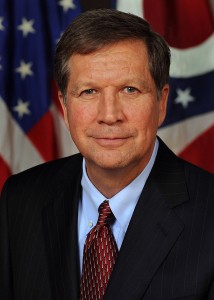 The men were talking a bit loudly, and I don’t think they even realized it. Almost everyone in the restaurant could hear them. In fact, a lot of people were obviously listening.
The men were talking a bit loudly, and I don’t think they even realized it. Almost everyone in the restaurant could hear them. In fact, a lot of people were obviously listening.
“I know what you mean,” the man with the deep voice said. “But I’m seeing something totally different in this election. You’re right that the outsiders like Trump and Cruz are really getting a lot of support. I just don’t think they’re the true outsiders.”
“What do you mean?” the man with the higher voice asked. “Who else is an outsider? Do you mean Bernie Sanders, because he’s a socialist?”
“No, I wasn’t thinking of Sanders,” Deep Voice replied. “But let’s just look at this whole election from a different angle. We’re calling Trump and Cruz outsiders because Trump has never held political office and Cruz is a Tea Party guy who constantly attacks what he calls ‘the Washington Cartel,’ meaning the establishment from both parties. Right?”
“Right.”
“Well, I’m not sure that’s a very good criteria for being an outsider. I think the reason a lot of voters want an outsider this year is because they’re tired of the political establishment, of both parties, and of politicians who get into office and just do more of the same—like the people they replaced. They promise real change, but it doesn’t happen. In fact, a lot of the bad things just keep getting worse, election after election.
“What we need is a real outsider. Not just someone who hasn’t been in office or always attacks other politicians, but someone who is the kind of leader we really want…”
He paused, and Higher Voice asked, “But what do you mean? I’m not sure what your point is.”
Class and Leadership
“Okay,” Deep Voice responded. “I’ll get right to the point. Our politics has become a disaster. The politicians fight all the time. They are constantly attacking each other. Attack. Attack. Attack. And we’re supposed to believe that this is just the way things are.
“But they shouldn’t be this way. We shouldn’t want leaders who are all about attacking people all the time. We vote them into office, and they just keep attacking each other in Washington. That’s not leadership. Not really. If they attacked a lot and then got really important things done, and made a lot of things better, that would be one thing. But that’s not what happens. They attack, and attack, and attack—and that’s pretty much all they get done.
“We need a president who gets the right things done, and who also doesn’t go around attacking people. We need the kind of leader we can look up to, someone who can bring people together in this nation. We’re so divided. So angrily divided. We need a real leader to get the nation back on track.”
Higher Voice replied: “That’s too idealistic…”
“Reagan did it,” Deep Voice interrupted. “He wasn’t the Attacker in Chief. He fought for what he wanted, but he did it with class. Not with name calling. Not with personal attacks. He stayed above that kind of junk. He was too good for it. He fought back, yes. But never by stooping to name-calling and personal vendettas. And that allowed him to lead the nation in big ways, and do big things like bring an end to the Cold War. We need a classy president who is also tough and confident.
“And a truly classy president would be a true outsider, very different from the attacking years of Bush, Clinton, Bush, and Obama. Just look at the 2008 election. We watched Obama and Hillary attack each other mercilessly in the campaign and debates, and we should have realized right then what kind of president Obama would be.
“We need a real change. And I don’t think that means making our politics even more focused on attacks. It means electing someone who isn’t an attacker. A fighter, yes. But classy, like a true leader.”
Higher Voice sighed loudly. “That’s so far from the current election that I don’t know what you’re proposing. What do you want to happen?”
To Act or To Attack
“First,” Deep Voice said, “let’s divide the candidates into those who attack and those who refuse to get down in the muck and act like jerks. Hillary, Trump, Cruz and Rubio are often on the attack—in the debates, in interviews, in their campaign rallies and speeches. They attack a lot. Regardless of how you feel about their politics, or their reasons for such attacks, they are consistently attacking, attacking, attacking. So put them in the jerk category, at least for this discussion.
“Second, the three candidates who usually aren’t on the attack are Bernie Sanders, John Kasich, and Ben Carson. So if we want a classy president, one whose focus is always on building people instead of tearing them down, it has to be one of them. I really dislike Sanders’ politics, so throw him out of the mix. He’s a socialist, and proud of it, and his proposals would drastically hurt the nation.
“So, third, we’re left with Kasich and Carson. Both are classy. And both go out of their way not to attack other people. They focus on building people up. They really do.
“And before you roll your eyes, really think about what I’m saying. If we want our politics to be built on people acting like jerks and fighting each other—and not really improving our nation—we should keep electing people who attack, attack, attack.
“But if we want real change, the kind that we can truly be proud of, we need to change the way our top leader acts. We need class. Depth. Virtue. We need a Washington, a Lincoln, a real leader. Tough, yes. But focused on building others, not attacking them.
“You can call this idealistic if you want, but what I’m saying is true! If we don’t have a true leader, a classy, uplifting Reaganesque example that we can tell our kids to emulate, we haven’t put our best leader in the Oval Office. Imagine telling your 12 year old son: ‘Be like Donald Trump’ or ‘attack people like Ted Cruz—as long as you win, it’s okay.’ Or even: ‘If you get behind, like Marco Rubio, find out everything bad you can about the other person and loudly tell everyone.’
“Ridiculous. We need a real president. And both Carson and Kasich are the kind of men you can tell your children to emulate. To be proud of. To follow—even into battle and death if necessary to defend our nation. To admire.
“We’ve become so used to something less that the highest character in our leaders that we seem ready to accept mediocrity in character and behavior and simply shrug it off. We need to do better than that!”
The Question of Class
Higher Voice interrupted: “I just don’t think Carson has enough experience in doing the kinds of things a president has to do.”
“Maybe he doesn’t. Or maybe he does. His understanding of freedom principles is deep, like Cruz or Rand Paul, and he might surprise you. But let’s say you’re right, just for the sake of argument. That still leaves Kasich…
He paused. Then he spoke a bit more quietly, and I noticed people leaning forward to hear. “John Kasich is everything you would want a president to be in terms of character. He’s classy to the core. He’s a man of principle and morals. And he never attacks others to tear them down or try to get himself ahead. Not ever. When others attack him, he answers their charges, clarifies the truth, and then turns to the policies our nation needs. Like Carson.
“Kasich doesn’t do what Trump, Hillary, Cruz and Rubio frequently do in the same situations—start counter-attacking whoever attacked them. When the media tries to get him to attack, he refuses. He consistently calls us to our better angels, as Madison put it.
“Kasich is classy like Reagan. He’s above petty name-calling and attacks like Reagan. He focuses on building people. Pretty much always. Yet his history proves that when it’s time to fight—against real enemies, like terrorists—he doesn’t shrink or back down. He is deeply principled. Again, like Reagan.
“But here’s the real kicker. Kasich is actually the most experienced leader out of everyone running for president. He was the architect of balancing the U.S. budget in the 1990s. He led it, and he planned out the details. He knows how to balance our national budget! He’s already done it once. Nobody else can say that. Bill Clinton and Newt Gingrich took credit for negotiating it, but John Kasich ran the numbers and developed the plan.
“He also balanced the budget of Ohio as governor. He started out with a major deficit, and turned it around very quickly. And made it last. Nobody else in the race has ever done that—with a state, or with the United States. Only Kasich has done it. Twice!
“He also served on committees that oversaw military and international affairs, and has more national defense experience than anyone else running for president, including Hillary Clinton. And beyond all this, he’s a true conservative, and has been for decades. He also worked many years in private business as a leader—he’s not just some lifetime politician.”
America The Great, Again
Higher Voice asked: “Why hasn’t he caught on with the voters?”
“I’m not sure,” Deep Voice replied. “Part of it is probably that he’s not loud and constantly attacking people. Part of it is probably that a lot of voters don’t really know much about him. I’m not sure. He did do well in New Hampshire, and the race is far from over.”
He paused. Then kept talking: “Kasich has class. He has dignity. He is the kind of person we can look up to and tell our kids to look up to—and mean it. He’s tough. He’s a proven leader. But he’s really, really nice. And, again, he’s the only person in the race who has ever balanced a major government budget, and he’s done it at both the state and the national levels. That’s huge!
“I’ve really given this a lot of thought and research. Go back and read Kasich’s speeches. He’s the kind of man who would tell Mr. Gorbachev (or Putin) to ‘Tear down this wall!’ He’s the real deal.
“Conservatives need to step back, take a deep breath, and give Kasich another look. If we want the kind of America that truly is great again, we need the right kind of leadership. And that means the right kind of leader! A true leader, one who isn’t just going to get the job done but who’ll get it done with class, dignity, and an infectious smile.”
I left the restaurant mentally kicking myself. In all my reading and watching of the election, over many months, I hadn’t done what I always tell others to do—really go study the records, writings, and speeches of all the candidates. Really get to know them. At least, I hadn’t done this with Kasich. I’m remedying that.
Category : Aristocracy &Blog &Community &Constitution &Culture &Current Events &Economics &Featured &Foreign Affairs &Generations &Government &History &Independents &Leadership &Liberty &Politics &Statesmanship
Trump vs Trump
January 26th, 2016 // 12:24 am @ Oliver DeMille
The Maybe
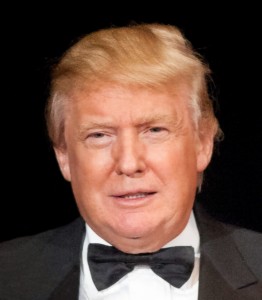 A lot of people can’t stand the thought of Donald Trump for president. And, in contrast, a lot of people really like the idea. But neither of these groups, alone, is going to make the decision. Those who support Trump will vote for him, and those don’t, won’t.
A lot of people can’t stand the thought of Donald Trump for president. And, in contrast, a lot of people really like the idea. But neither of these groups, alone, is going to make the decision. Those who support Trump will vote for him, and those don’t, won’t.
There is another interesting group that will have a lot of influence in the primaries, and perhaps in the general election. This group (let’s call them Group X) isn’t sure what to do with this election. Perhaps Group X was summed up best by a man in Iowa who said something like this:
A lot of people don’t want to vote for Donald Trump, but they really do want to vote for someone like Donald Trump—someone with pretty much the same views, the same policies, the same disdain for Washington, the same sense of really fixing things, and the same aggressiveness, but without the outrageous, bombastic, offensive and extreme.
Group X could have a huge impact on the election. But if not Donald Trump, then who else could they elect?
What Voters Want
Some pundits immediately suggested that Ted Cruz or Chris Christie might meet their needs. But the Group X voters shook their heads. What the pundits don’t seem to understand is that many voters believe that if Christie, Rubio, Cruz, Bush, Fiorina, or Huckabee win the White House, it will be politics as usual in Washington. And the voters hate this.
Just think: Who will any of these candidates put into the top cabinet positions? Answer: politicians. The same old faces. Meaning that nothing will change.
But Trump: he’ll put in new people. From outside political circles. He’ll do things very differently. And that’s what voters want. This is what the Republican and media pundits don’t seem to grasp. The conservative voters want change. Real change. Not another George Bush I and George Bush II era.
The truth is, members of Group X want Trump, but they want him to be less…scary. To stop attacking war heroes, the disabled, and every minority in the nation and world. They want him to be politically incorrect, but not petty, vindictive and mean-spirited.
Moreover, as a nation we’re now moving into an era of war, whether we realize it or not. It’s a new kind of war, to be sure, with sleeper cells waiting in neighborhoods (like in San Bernandino) and lone extremist shooters (like in Philadelphia, Tennessee, and Fort Hood). But it’s real.
Group X voters want a wartime president, someone who says hard things and fixes heretofore unfixable problems. But they are torn, because they want the same president to do it all nicely. Many of these people have long felt that politics is too contentious and corrupt. They’ve spent years hoping for a new era, one that addresses the uncomfortable mire of American politics.
Now they are faced with just such a major shift, but it is headed in a very different direction. Putin is a wildcard and obvious danger, and China’s threat rests heavy on many Americans. Al-Qaeda, the Taliban, ISIS and other terrorists have many voters very concerned, and now the idea that radicalized terrorist attackers might be living in any neighborhood…it has a lot of people scared.
All this at a time that many Americans suffer a sort of collective PTSD about the Great Recession of 2008-2012. “When will the next major problems hit our economy?” many people wonder. Others ask, “Has the economy really, actually, recovered like Washington claims? Then why doesn’t it feel like it?”
The Trump Card
Many committed Trump supporters have long since moved past this internal struggle. In their minds, it is clear that Washington is a disaster, that both parties are unable to really put things in order, and that Trump is the most decidedly-non-politician in the race.
They don’t necessarily agree with everything he says about the border with Mexico, but they believe he’ll build a real wall and close the border if anyone can. In their view, none of the politicians will even get close.
Likewise, they don’t agree with Trump’s worst rhetoric against Syrian refugees, or other groups, but they’re convinced that he’ll make the nation a lot safer than anyone else who is running.
Apply this same approach to every issue—Russia, China, the economy. Trump supporters believe that if anyone can actually take on Putin, Iran, China, and change the economy, it’s Trump. In their view, everyone else in the presidential race will just dither around, play politics, talk a lot, and nothing will really change. In fact, things will just get worse over the next four years—just like the last eight, sixteen, or even twenty-four years have under Obama, Bush and Clinton.
And, of course, on the other side of the divide there are those who wouldn’t dream of voting for Trump. From their perspective, he’s unpredictable, divisive, and vindictive—unfit to be in the White House.
The challenge for Group X is that they partially agree with both sides. They struggle, because on the one hand they think that only Trump will really change things. Only Trump will actually fix these huge problems. They’ve just watched decades of politicians make promises, and nothing got done, or bad things got done. They know what another politician in the White House will do—and they don’t want that.
But on the other hand, they wonder if Trump will change it too much. Will his extreme rhetoric go too far? Hasn’t it already? Will rounding up illegal aliens in the U.S. go too far?
They like Trump when they think about him facing off with Putin, ISIS, China, North Korea, and Iran. He might be wild and unpredictable, but he’s OUR wild and unpredictable—so watch out! But they cringe when they picture how he might decide to respond to a big race riot in a major U.S. city. Or ten major U.S. cities.
The Real Race
This is the big debate in the 2016 election. For this group of conservatives (in Iowa, New Hampshire, South Carolina, Nevada, and a handful of other early voting states) who will probably determine how the primaries turn out, it’s not Trump vs. Cruz, Trump vs. Carson or Bush, Trump vs. Rubio or even Trump vs. Hillary Clinton or Bernie Sanders.
It’s Trump vs. Trump. Pure and simple.
Which way will these Group X voters turn? They are being pulled in two powerful directions, and the elections are rapidly approaching.
As the primaries arrive, we will see what they decide. They may pull back, deciding in the end that Trump is just too much of a wildcard, or they may decide that it’s finally time for a major shakeup in Washington, even a bumpy, white-knuckled one. After all, things have been going badly for over twenty-four years, so let’s try something different.
Trump supporters say that concerns about Trump are extreme, that the rhetoric of the campaign will eventually calm to the intelligent decisions of a President Trump—a proven leader and an effective, rational business executive, an inspiring and good father.
The X Group will consider this viewpoint as well. But it is still very unclear how they will vote. We will probably have to wait for the actual caucuses and primaries to see which direction they’ll choose.
Category : Blog &Citizenship &Community &Culture &Current Events &Economics &Foreign Affairs &Generations &Government &History &Independents &Leadership &Liberty &Politics
The Media is Wrong About America’s Election “Anger” Problem
January 20th, 2016 // 7:52 am @ Oliver DeMille
The New Myth
 Something significant has occurred during the 2015-2016 election cycle. The mainstream media has effectively portrayed “anger” or “being politically angry” as bad. “Good” citizens, in this context, are those who aren’t upset, frustrated, or angry about…well…anything.
Something significant has occurred during the 2015-2016 election cycle. The mainstream media has effectively portrayed “anger” or “being politically angry” as bad. “Good” citizens, in this context, are those who aren’t upset, frustrated, or angry about…well…anything.
Indeed, the media has created an interesting picture of what politics should be (in their opinion). This is multifaceted, but actually quite simple. With careful camera shots, and a clear agenda in the editing room, the media has portrayed two Americas–both of them far from accurate.
On the one hand, Donald Trump, Ted Cruz, Chris Christie, and Carly Fiorina have become the faces of American anger. When the media shows clips of these candidates, they are animated, usually upset about something, and speaking in strident tones with extreme words.
Their supporters are portrayed in nearly all of the video images as rowdy, unthinking, and a bit star-struck. The clips are carefully selected to show middle- and lower-class-looking Americans waving flags, wearing campaign t-shirts, and sporting sweats, jeans, un-manicured hair and waistlines that are larger-than-normal (at least on television).
In contrast, Bernie Sanders is portrayed as an apostle of decorum. Like other candidates, he waves his arms, speaks in extreme terms, and jabs his finger repeatedly at the crowd—but this is nearly always aired without actual audio. We often don’t hear what Sanders is saying; instead a reporter or commentator uses moderate tones while these pictures run in the background.
We are left with the soft, soothing and studied commentaries of professional journalists, while Sanders’ visual antics communicate energy, passion, and political strength. The juxtaposition of these cues and messages is subtle, but effective: “Sanders has great passion and momentum, and his ideas are credible and intelligent.”
Behind the Curtain
When we are allowed to actually hear Sanders speak, he is usually sitting in a one-on-one interview, conversational, and politely direct. No finger-jabbing, no waving arms. His hair may be a throwback to an episode of Back to the Future, but he looks confidently and humbly into the camera and speaks like an economics professor. “He is just the messenger. Hear his truth…”
Most clips of his audiences emphasize trim, handsome, young people (many of them students), often with jackets and ties. Indeed, they are exact replicas of Ron Paul crowds from past elections. The older participants mostly look like academics… Once again, the message is clear.
In contrast: When Trump or Cruz are interviewed in person, the cameras invade their personal space and close in on the face. Every “angry” wrinkle is visible. The camera backs off for Sanders and Clinton, showing the whole body—dressed for an episode of Mr. Smith Goes to Washington. The message is obvious: “This is a genuine man, or woman, of the people.” Clips of their intellectual discourses-of-the-day are played and replayed. As for Trump and Cruz, the sound bites are sensational and extreme.
But watch the full videos, where they are available. In reality, all four of these candidates have moments of extremism and other moments of intellectual depth. The same is true of Christie, Fiorina, Carson, and O’Malley, for that matter. Yet ask most TV viewers, and the word “intellectual” will apply to the Democratic candidates, while the Republican candidates are “extreme.”
A lot of artful and conscientious camerawork reinforces these stereotypes.
To be clear: Sanders’ stump speeches are every bit as “angry” as Trump’s. His rhetoric is patently extreme. “Wall street is ruining it for everyone else. Greed controls our nation. The 1 percent must pay their fair share, including free college for everyone. A much higher minimum wage is absolutely necessary—anyone who disagrees is part of the lies and greed.”
Likewise, Cruz is every bit as intellectual and studied as Hillary.
Anger Management
Perhaps the most interesting thing in all this: The typical ways the mainstream media portrays the Democrats are also applied to Marco Rubio. Not to Huckabee or Rand Paul. Not to Santorum or Kasich. Not to Christie or Carson. Just to Rubio.
The media has so far portrayed him as intellectual, credible, wise—like the Democratic candidates. Also, Rubio doesn’t wear the typical Republican uniform (suits and ties that scream “Mr. Smith Owns Washington.”). He frequently wears a sweater-like casual jacket with a zipper down the front. Very pedestrian. Very academic. Again, the mainstream media frequently portrays him like it does the Democratic candidates.
Fascinating.
[Why is that, do you suppose?]
By the way, the same thing occurred with John McCain during the 2007-2008 primaries. Later, once he was the nominee, the media shifted its approach and portrayed him the same way it had other Republican: extreme, out of touch, slick around the edges, uncaring, silver platter.
Romney didn’t get this stylized media treatment in 2012, and no other Republican is getting it now. Just McCain and Rubio. Interesting…
And, again, the real message of the 2016 election, if you accept the cues and innuendos of the mainstream media, is that:
- “Anger is bad!”
and
- “The Republicans are all angry.”
Let’s consider this idea seriously. If anger is bad for politics, then we must of course be happy with everything President Obama has done. “No anger. Just smile. It’s all good.”
Steps to Solutions
The problem is that it isn’t all good. In his last State of the Union address, the President painted a rosy picture of a more prosperous and safer American than when he took office. Both are false. The national debt has ballooned from $10 trillion when he entered the White House to $19 trillion today. ISIS is a real threat, along with Al-Qaeda, the Taliban, other terrorists, North Korea, Iran (much worse than before), China, Russia…etc. We aren’t a bit safer.
There is much to be concerned about—very concerned. Calling such concern “anger” and equating it with being unintelligent or uninformed is, in fact, totally out of touch. It’s also ignorant. False. And insulting.
The economy is still facing serious problems, and the last seven years have only made things worse. Are many voters “angry?” Yes, in both parties. And with good reason.
A smug, arrogant media isn’t helping. Let’s be honest. The mainstream media are at least as responsible for today’s widespread American “anger” as the White House.
Anger isn’t the ultimate solution, to be sure. But it actually is a reasonable first step. Or, perhaps, the second step, after first recognizing that something has gone wrong. There’s a lot to be angry about, and only people who aren’t paying attention—or actually like the status quo—feel great about the country’s current path.
Determination and Change
Being angry about the bad directions Washington is taking doesn’t mean voters are unintelligent, uninformed, or unsophisticated. It means they care. It means they’re watching, and they expect Washington to do its job—a lot better than it has recently.
It means they’re still part of a democratic republic and they still believe democracy works. They take their citizenship seriously, and they’re gearing up to take action on election night.
The truth is that this is what scares the mainstream media. They label it “angry” because they don’t want to admit that the majority of voters disagree with the elite media and want a lot more government “of the people, by the people, and for the people.”
If you’re an elitist, freedom scares you. So you call it names, like “angry” or “uninformed.” In truth, it is angry, but it’s actually very well informed. It’s the power of the people focused on an election with an intensity not seen in a lot of years.
The people want real change, like they did in 2010 and 2014. And they’re determined to make it happen. But this time, their intensity is pointed at a presidential election.
The mainstream media knows what’s coming, but they’re going to try to stop it if they can. This approach will make a lot of voters even angrier—and even more determined.
**************************************
Click on a title for offer details:
Homeschooling for Dads Bundle $45 – just $18 with coupon DADSROCK-15
How to Mentor 7-Week Course
(name your price! Really!)
The U.S. Constitution and the 196 Indispensable Principles of Freedom DEEP DISCOUNT!
The Leadership Education Manifesto DEEP DISCOUNT!
The Freedom Bundle
DEEP DISCOUNT!
Category : Blog &Citizenship &Community &Culture &Current Events &Education &Featured &Generations &Government &History &Independents &Information Age &Leadership &Liberty &Politics
A Real State of the Union
January 7th, 2016 // 9:09 am @ Oliver DeMille
Where America Is Right Now
Whatever the President says in the State of the Union address early next week, here’s what really needs to be said.
A Real State of the Union:
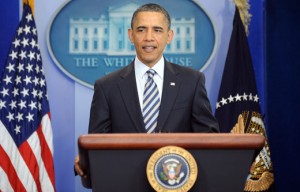 Sometimes things just don’t add up. They don’t make sense. There’s no way to reconcile them with…well, reality. They are square pegs in a world of round holes.
Sometimes things just don’t add up. They don’t make sense. There’s no way to reconcile them with…well, reality. They are square pegs in a world of round holes.
I recently came across five such troubling facts and questions in current events, and, to make them even more ridiculous, they’re all coming from basically the same place: The current White House.
So here they are. I’ll give a little commentary on them, but not much. They’re pretty self-explanatory. Or, maybe a better way to say this is that they’re all amazingly ridiculous and commentary won’t help.
1. According to the bipartisan Congressional Budget Office, Obamacare (the Affordable Health Care Act) will reduce the number of full-time workers in the U.S. by 2 million over the next ten years.
Seriously?
Yes.
Just think of it: That’s 2 million full-time jobs that are going to be lost simply (and specifically) because of Obamacare.
This begs the question: “Then why do we keep it?”
The next three items come from an unattributed note circulating on social media. I think they’re worth reading:
2. “We are advised to NOT judge all Muslims by the actions of a few lunatics, but we are encouraged to judge ALL gun owners by the actions of few lunatics.”
The White House couldn’t be more inconsistent on these two issues.
(By the way, I side with not judging any group by the actions a few bad apples.)
3. “Why are we cutting benefits for our veterans, no pay raises for our military and reducing the size of our army (too expensive to maintain), but we are not stopping payments or benefits to illegal aliens, or cutting federal aid to foreign countries?”
Cut the foreign aid and massive welfare (across the board, not just to immigrants) and rebuild our security.
4. “Seems we constantly hear about how Social Security is going to run out of money. But we never hear about welfare or food stamps running out of money? What’s interesting is the first group ‘worked for’ their money, but the second didn’t.”
Did government use the money paid for the first group to cover the second?
The last one is just plain jaw dropping:
5. Over the course of many months our President and the White House have repeatedly assured us of two things: (A) ISIS, Al-Qaeda, and Islamic terrorists aren’t much of a threat, and (B) the most pressing priority for our national security is to get more nations to sign environmental treaties.
Talk about fiddling while Rome burns…
The Real Concerns
Together these five amazing attitudes give us a pretty good indication of how our current national leadership is thinking.
What about terrorism? What about the struggling economy? What about the massive over-regulation of business? What about the huge amounts of capital and jobs that are fleeing to other nations? What about serious unemployment (hidden because of the way Washington calculates its statistics)? What about China, Iran, and Putin? What about North Korea, and Syria? What about our skyrocketing national debt? What about…
“Don’t worry,” we’re told. “It’s under control.”
Really?
Where?
Certainly not here in the real world. The truth is that these things are far from “under control.”
I’m an optimist, and I still believe that America’s best years are ahead. But we need to make some major changes—and fast.
Category : Blog &Citizenship &Community &Constitution &Culture &Current Events &Featured &Foreign Affairs &Generations &Government &History &Independents &Leadership &Liberty &Politics



